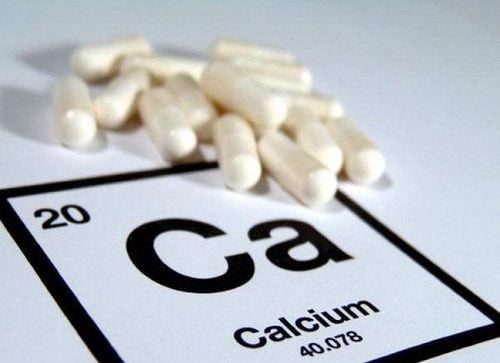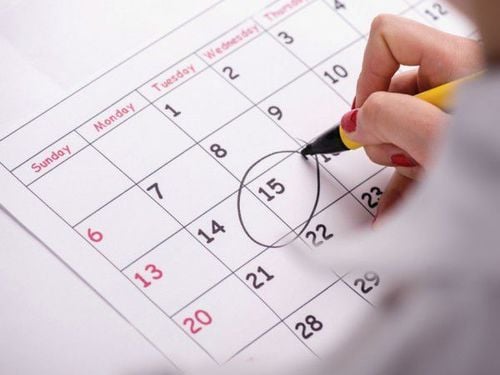Article professionally consulted by Master, Doctor Nguyen Thi My - Department of Internal Medicine - Vinmec Da Nang International General Hospital.
Iron is a component of hemoglobin in red blood cells, supporting the transport of oxygen and carbon dioxide in respiration. Iron deficiency can significantly impact health, particularly causing dangerous anemia.
1. Iron Absorption Process in the Body
Iron is an essential trace element and plays a crucial role in health. According to the Central Institute of Hematology and Blood Transfusion, the iron absorption process begins in the stomach but mainly occurs in the duodenum and to a lesser extent in the upper small intestine. For absorption, iron must be converted from ferric (Fe3+) to ferrous (Fe2+). Pepsin separates iron from organic compounds and converts it into a form bound to amino acids or sugars.
In cases of iron deficiency, a larger amount of iron is absorbed through the brush border into the intestinal mucosal cells and into the blood via the portal vein. Conversely, in cases of iron overload, the amount of iron absorbed into the intestinal mucosal cells decreases.
About two-thirds of the body's iron is contained in hemoglobin (approximately 2500mg), about 30% of iron is stored in ferritin and hemosiderin in the reticuloendothelial system in the liver, spleen, bone marrow, etc. Iron is mainly stored in ferritin, a multi-subunit protein, and is best absorbed when fasting because food reduces the absorption of this important micronutrient
2. The Best Time to Take Iron During the Day

According to specialists, taking iron in the early morning is effective because the body has just gone through a long sleep, and at this time, the levels of calcium and iron in the body are at their lowest. Therefore, taking iron in the morning is recommended by experts.
Iron is a very important mineral in the blood formation process for the body, not only for adults but also for developing children.
Iron is best absorbed when fasting because food reduces the absorption of this important micronutrient. It is best to take iron before or after breakfast for about 30 minutes.
3. The role of iron
Iron is essential for the formation of hemoglobin, an important component in blood that supplies oxygen to vital organs in our body. Particularly, iron is very important for pregnant women and young children.
For pregnant women: During pregnancy, a woman's body undergoes many changes both physically and psychologically. Therefore, the most noticeable change is the anemia condition of pregnant women.
Thus, the nutritional regimen for pregnant women also changes to supplement iron throughout pregnancy and help regenerate blood effectively. However, during this time, the mother needs to provide many nutrients for the fetus to absorb well, so it cannot ensure full minerals.
Therefore, the mother needs to supplement from functional foods and take iron daily. Taking iron also supports the synthesis of minerals to help the body prevent anemia, helping the fetus absorb optimally. Additionally, the fetus during the formation of organs, especially brain formation, needs to be fully supplied with essential minerals, especially iron.
Therefore, during this time, pregnant women need to pay attention to taking iron daily to bring good health for themselves and ensure the comprehensive development of the fetus.
For children: Not only the fetus needs to be fully supplied with iron, but young children also need to be fully supplemented with minerals. Taking iron daily not only helps children supplement iron due to anemia but also supports and absorbs the necessary calcium for comprehensive bone development.
To ensure comprehensive health, supplementing iron for newborns daily is very necessary and parents need to pay attention.
4. Some Notes When Taking Iron Supplements
Do not take calcium with iron because if the calcium dose is at 300mg, it can hinder the absorption of iron. This is a note for you when taking iron, balance the dosage and timing to avoid mineral absorption interference.

Vitamin C helps convert Fe3+ to Fe2+ for better absorption, so you should drink orange juice to help iron absorption. Animal protein also contains substances that support optimal iron absorption, so you should supplement fish and meat in daily meals. However, avoid stimulants like tea, coffee, carbonated drinks as they hinder iron absorption. Do not combine iron supplements with tetracycline and quinolone antibiotics, antacids, thyroid hormones.
Iron is better absorbed when taken on an empty stomach and food (especially calcium-rich foods) affects iron absorption, so the best time to take iron tablets is usually 1 hour before or 2 hours after meals. Take the medicine with at least half a cup of water and do not chew the tablet when taking (for tablet forms).
Children under 12 years old or the elderly should not use tablet forms but use drops or syrup (easier to swallow). Follow the dosage instructions for drops or spoonfuls suitable for each age group, when taking syrup, teeth may turn black (can be remedied by drinking through a straw, mixing with water, and then drinking).
You can supplement iron-rich foods like oysters, beef, fish, and chicken, and eat these foods with vitamin C-rich foods and fruits to help better iron absorption. Avoid drinking tea, coffee near meals (should drink at least 1 hour apart) because these drinks contain caffeine, tannin which significantly reduces the body's ability to absorb iron.
o arrange an appointment, please call … or make your reservation directly HERE. You may also download the MyVinmec app to schedule appointments faster and manage your reservations more conveniently.















